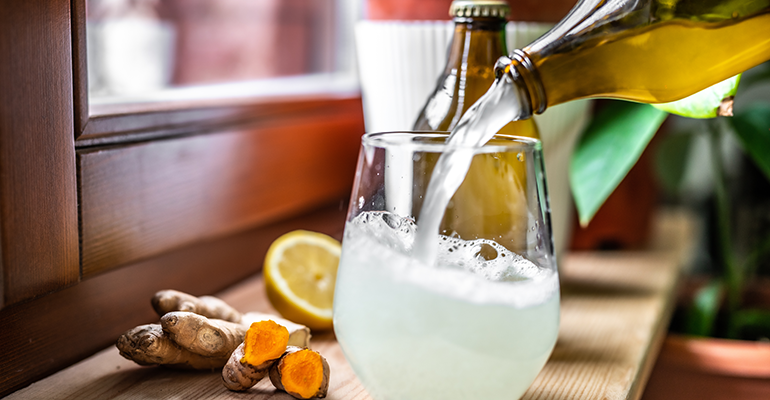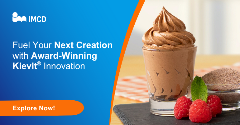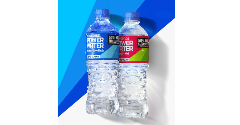News
Thirst for no and low-alcohol products intensifies
23 Mar 2023
Demand for alcohol-free beverages is growing but often, alternatives are still seen missing the intense and complex flavour of alcohol. Adding functional botanical ingredients and exploring complex flavour profiles can help address this, say experts.
The market value of low and no alcohol surpassed $11 billion in 2022, up from $8 billion in 2018, global beverage insights provider IWSR revealed. Showing no signs of slowing down, the alcohol alternatives sector is expected to increase by a third by 2026, with no-alcoholic drinks propelling this growth.

No and low-alcohol products are gaining prominence due to global factors. Consumers prioritising health and wellness and seeking a more balanced lifestyle propel the trend forward. Elevated by the Covid-19 pandemic, people are more conscious about their health and what they put in their bodies.
Health and wellness-led alcohol reduction and avoidance is particularly true for millennials and Generation Z consumers, who are more mindful of their alcohol consumption.
Previously, alcohol-free options mainly contained glycerine, flavourings and preservatives. New developments are widespread, ranging from brands creating products to mimic the taste and experience of alcoholic beverages to those that include functional ingredients.
These functional drinks aim to offer additional health benefits and create the desired effects of relaxation, mood enhancement and boosted energy levels that consumers associate with alcohol, without alcohol.
“It is all about elevating the drinking experience, providing the same or better experience without alcohol,” says Aksana Fitzpatrick, co-founder of PiQi, a UK-based gut health drink that promotes the probiotic benefits of kefir.
The category is also seeing a resurgence in traditional fermented drinks like water kefir, kombucha and switchel, which offer a satisfying mouthfeel with digestion benefits. Kombucha, in particular, has become quite mainstream, paving the way for currently lesser-known beverages.
Reducing or eliminating alcohol intake and opting for alcohol alternatives is also linked to health benefits including better sleep, better mental health and lessened hydration, Horwell says. The connection between health and fitness is also prevalent, with consumers aware and conscious of their calorie intake, alcohol’s contribution to it and alcohol’s negative health effects.
 Pictured: Kombucha | © AdobeStock/Zolt4n
Pictured: Kombucha | © AdobeStock/Zolt4n
“The rise of mindful drinking is also contributing, as consumers are more curious about non-alcoholic options and the wholesome ingredients that go into them, away from artificial ingredients and sugar,” notes Fitzpatrick.
Richard Horwell, managing director of Brand Relations says that alcohol alternatives have also become more affordable and more attainable. “There is a wider market because it may attract people who drink alcohol but also people who don’t drink alcohol.”
Barriers to expansion
Consumers are often unfamiliar with many newcomers and might prioritise a familiar alcoholic or a simple soda brand, so there needs to be a focus on sampling, educating customers about the benefits of the drinks, and providing more opportunities to try products on more occasions.
“One of the main barriers to expansion is the perception that non-alcoholic beverages are less sophisticated and lack the depth of flavour that alcoholic beverages offer,” says Fitzgerald.
Manufacturers must explore flavour profiles as some flavours and aromas don’t come out as they would in ethanol. “Non-alcoholic spirits in bigger packaging, for example, 500 ml and up, need to contain preservatives.”
The organoleptic properties of alcohol alternatives are under the spotlight. Taste is a primary area, as products are often “missing the intense and complex flavour of alcohol”, Horwell says. De-alcoholised wine, for example, cannot deliver on taste, Horwell adds. A lack of quality mocktail options is also driving new formulation launches.
Price is also a primary factor. Non-alcoholic alternatives can be around the same price as alcohol. “People are unconvinced that they should pay the same price or more, especially if there are decreased or no taste and mood benefits,” says Horwell.
Function, flavour, and overall experience
Today’s alcohol alternative brands must also explore how best they can create sought-after formulations consumers want in various settings. “Brands need to leverage at-home experiences,” says Horwell.
Similarly to how producers have honed plant-based proteins that mimic meat, fish and non-vegetarian and vegan food products, the alcohol alternatives segment is doing the same. Manufacturers “still need to work on their recipes to improve the taste and mouthfeel”, Horwell says.
From using simple ingredients to mimicking the taste and mouthfeel of alcohol, companies are looking to incorporate more functional ingredients like nootropics and adaptogens to offer extra health and mood benefits. Flavours are also becoming more complex and sophisticated to create unique flavour profiles and experiences and give consumers more choice.
“We can also expect to see more collaborations between alcohol and non-alcohol brands,” says Fitzpatrick. More investment in this space is also anticipated as consumers seek to balance their desire for social experiences with their health and wellness goals. “Mindful drinking is here to stay,” Fitzpatrick adds.
Related news

Oat Barista: Innovation for game-changing beverages
20 Nov 2025
Oat Barista is a clean label, sustainable, and innovative drink base specifically designed to create the perfect foam in one single ingredient.
Read more
How younger consumers are redefining ingredient choices and rejecting brand loyalty
18 Nov 2025
Gen Z and millennial consumers’ preferences for transparency, functionality, and purpose are “redefining the very nature of consumption itself”, says SPINS.
Read more
Hybrid formats and flexible positioning to disrupt category norms in 2026
17 Nov 2025
Trend forecasters expect food and drink to move more fluidly across occasions, functions, and formats as consumers seek versatility, novelty, and convenience.
Read more
Danone highlights digestive health as potential ‘tipping point’ for food industry
13 Nov 2025
Danone is betting on a food industry “tipping point” that will bloat the market for healthy products, particularly those related to gut health.
Read more
New UPF standard hoped to offer consumers ‘coherence and clarity’
10 Nov 2025
Ingredients companies are being urged to enter “a new era of partnership and innovation” following the launch of the industry’s first non-UPF verification scheme.
Read more
Faravelli at Fi Europe: Showcasing FARA® functional solutions for food and nutra
28 Oct 2025
At Fi Europe 2025 in Paris (stand 72M39), Faravelli showcases FARA® Customized Functional Solutions and a wide ingredient portfolio for food and nutra – delivering quality, innovation, and expertise.
Read more
Agrigum Redefined FIBER
27 Oct 2025
Agrigum has transformed gum acacia into a natural, science-backed fibre that supports gut health, sustainability, and innovation across global food and nutrition applications.
Read more
Expanding boundaries in food & beverage innovation
23 Oct 2025
IMCD and FrieslandCampina Professional expand partnership to deliver Kievit® across EMEA, enabling brands to enhance quality and accelerate time-to-market for tomorrow’s food & beverage creations.
Read more
Amazon Grocery launch aims to balance quality with affordability
22 Oct 2025
Global e-commerce giant Amazon has introduced a new private-label food brand, combining existing Amazon Fresh and Happy Belly products with new everyday items.
Read more
Powerade enters hydration space with launch of Power Water
21 Oct 2025
Coca-Cola’s Powerade brand has launched a zero-sugar, electrolyte-enhanced functional water, marking the brand's entry into the hydration space.
Read more